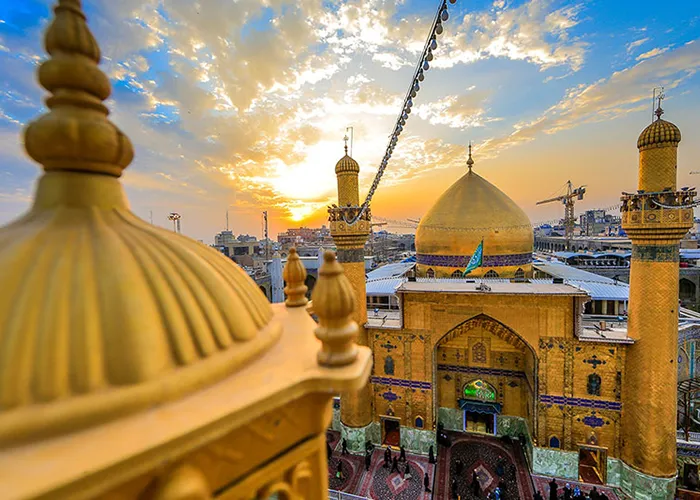Inspirational Tales – Volume02 Issue17
Shaykh al-Ṭūsī and His Lamp
In the golden city of Najaf, beneath the enduring shadow of the shrine of Amīr al-Mu’minīn (ʿalayhis-salām), lived a man whose light has continued to guide hearts and minds for nearly a millennium—Shaykh Abū Jaʿfar al-Ṭūsī. Revered for his towering intellect and encyclopaedic command over Islamic sciences, Shaykh Ṭūsī was not merely a jurist or theologian; he was a beacon of humility, compassion, and spiritual depth.
Originally from Ṭūs in the region of Khurāsān, he journeyed westward in search of sacred knowledge, eventually studying under some of the greatest scholars of his time. His pursuit led him to Baghdad, the intellectual capital of the era, where he quickly distinguished himself. But it was Najaf, with its sacred soil and spiritual atmosphere, that captured his heart. There, under the protective grace of Imām ʿAlī’s shrine, Shaykh Ṭūsī laid down roots that would shape the future of Shiʿi scholarship for generations.
In Najaf, he taught, wrote prolifically, debated with clarity, and inspired all who crossed his path. His works—such as al-Istibsār, al-Tahdhīb, and al-Khilāf—remain foundational texts studied in seminaries to this day. Yet, beyond the brilliance of his scholarly contributions, something even more radiant defined him—his character.
It is said that during his early years in Najaf, while deeply immersed in his studies and writings, he would light a single oil lamp to read and teach by night. One evening, a young student, hesitant and visibly poor, knocked on the Shaykh’s door. “O Master,” he murmured, “I cannot afford a lamp of my own. Might I study by yours?” Shaykh Ṭūsī paused, then smiled with his characteristic gentleness. Drawing the lamp closer to the student, he replied, “This light belongs to knowledge—and knowledge is not owned by any one of us.”
From that night on, his modest home became a sanctuary for seekers. More students came—some barefoot, some hungry, all yearning to learn. Shaykh Ṭūsī never turned anyone away. He shared his lamp, his food, his ink, his paper—his very time. Even when weary or burdened by the demands of leadership, he remained devoted to nurturing the minds and hearts of those around him.
Despite his responsibilities, he never abandoned Salāt al-Layl, the night prayer. Those close to him would sometimes hear him weeping quietly before dawn, whispering: “O Allah, let me be a lamp for others, even if I burn myself.”
It was with this spirit of sacrifice and sincerity that he founded the Ḥawza of Najaf—an institution that would become one of the most influential centres of Islamic learning in the world.
Dear reader, in an age of noise, ego, and self-promotion, Shaykh Ṭūsī’s legacy reminds us that true greatness lies in quiet service, in selfless giving, and in walking humbly with knowledge. Let us strive to be lamps in our own lives—not to be seen, but so others may see.
May Allah illuminate our hearts through the enduring light of His righteous servants.
editor's pick
news via inbox
Subscribe to the newsletter.




